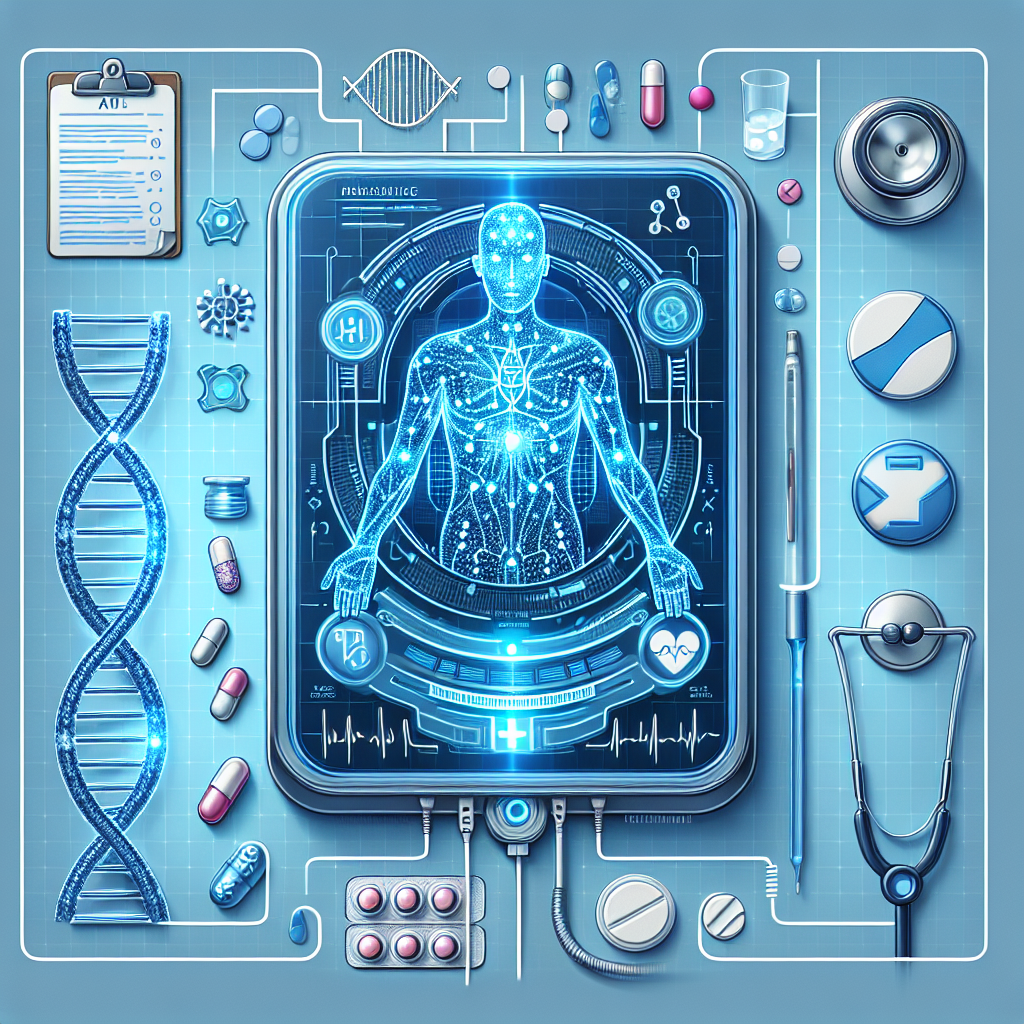AI: The Key to Personalized Medicine
In recent years, the field of medicine has seen rapid advancements in technology, particularly in the realm of artificial intelligence (AI). AI has become a powerful tool in healthcare, revolutionizing the way we diagnose, treat, and manage diseases. One of the most promising applications of AI in medicine is personalized medicine, where treatments are tailored to individual patients based on their unique genetic makeup, lifestyle, and environmental factors.
Personalized medicine holds the promise of more accurate diagnoses, more effective treatments, and better outcomes for patients. AI plays a crucial role in this paradigm shift by analyzing vast amounts of data, identifying patterns, and generating insights that can help healthcare providers make more informed decisions. In this article, we will explore how AI is transforming personalized medicine and the potential benefits it offers to patients and healthcare providers.
How Does AI Enable Personalized Medicine?
AI enables personalized medicine through the use of advanced algorithms that can analyze complex data sets, such as genetic information, medical records, and clinical data. By processing this information, AI systems can identify patterns, correlations, and relationships that may not be apparent to human clinicians. This allows healthcare providers to make more accurate diagnoses, predict disease outcomes, and recommend tailored treatments for individual patients.
One of the key advantages of AI in personalized medicine is its ability to process and analyze large amounts of data quickly and efficiently. This can help healthcare providers make more informed decisions in real-time, leading to better patient outcomes. Additionally, AI can help identify subtle patterns and trends in patient data that may not be apparent to human clinicians, potentially leading to earlier detection of diseases and more effective treatments.
AI can also help healthcare providers personalize treatment plans based on individual patient characteristics, such as genetic variations, lifestyle factors, and environmental influences. By considering these factors, healthcare providers can tailor treatments to the specific needs of each patient, leading to better outcomes and reduced side effects.
Benefits of Personalized Medicine Enabled by AI
There are several benefits of personalized medicine enabled by AI, both for patients and healthcare providers. Some of the key advantages include:
1. More Accurate Diagnoses: AI can help healthcare providers make more accurate diagnoses by analyzing a patient’s genetic information, medical history, and other relevant data. This can lead to earlier detection of diseases and more targeted treatments.
2. Tailored Treatments: AI can help healthcare providers personalize treatment plans based on individual patient characteristics, leading to more effective treatments and better outcomes.
3. Predictive Analytics: AI can help predict disease outcomes and identify patients at risk of developing certain conditions, allowing for early intervention and preventive measures.
4. Improved Patient Engagement: Personalized medicine enabled by AI can empower patients to take an active role in their healthcare by providing them with personalized treatment options and recommendations.
5. Cost-Effective Healthcare: By tailoring treatments to individual patients, AI can help reduce healthcare costs by avoiding unnecessary treatments and interventions.
Frequently Asked Questions (FAQs)
Q: How does AI analyze genetic information in personalized medicine?
A: AI algorithms can analyze genetic information by identifying patterns, variations, and mutations in a patient’s DNA. This information can help healthcare providers determine a patient’s risk of developing certain diseases and tailor treatments accordingly.
Q: Is personalized medicine only for genetic conditions?
A: While personalized medicine often involves analyzing genetic information, it can also take into account other factors such as lifestyle, environmental influences, and medical history. This holistic approach allows healthcare providers to personalize treatments based on a patient’s unique characteristics.
Q: Can AI replace human clinicians in personalized medicine?
A: AI is not meant to replace human clinicians but to augment their capabilities. While AI can analyze vast amounts of data and generate insights, human clinicians are still needed to interpret the results, make informed decisions, and provide personalized care to patients.
Q: How can patients benefit from personalized medicine enabled by AI?
A: Patients can benefit from personalized medicine enabled by AI through more accurate diagnoses, tailored treatments, predictive analytics, improved patient engagement, and cost-effective healthcare. Personalized medicine can lead to better outcomes, reduced side effects, and a higher quality of care for patients.
In conclusion, AI is revolutionizing personalized medicine by enabling healthcare providers to analyze vast amounts of data, identify patterns, and tailor treatments to individual patients. This paradigm shift holds the promise of more accurate diagnoses, more effective treatments, and better outcomes for patients. By harnessing the power of AI, personalized medicine has the potential to transform the way we approach healthcare and improve the lives of patients around the world.

